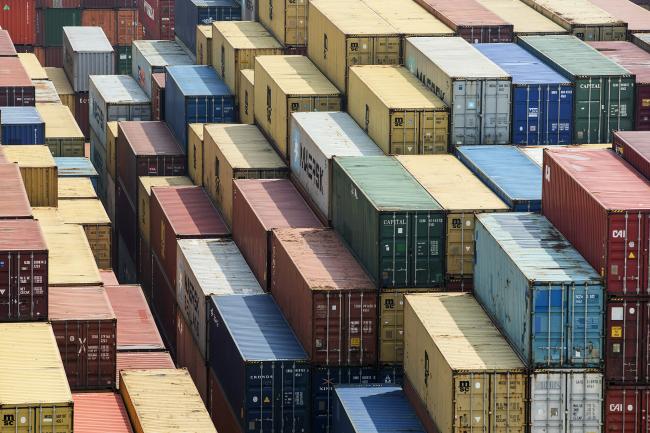(Bloomberg) -- Exporters of bags to toys in China cautioned that the trade war truce between the U.S. and China may provide just a minor respite in hostilities.
The U.S. agreed to refrain from raising tariffs on $200 billion of Chinese goods from a current 10 percent to punitive levels of 25 percent as planned on Jan. 1, according to announcements that followed the meeting between U.S. President Donald Trump and Chinese President Xi Jinping in Argentina. China agreed to buy American agricultural, energy and industrial goods.
The catch: the ceasefire is just for 90 days, after which the U.S. could revert to its tariff-raising plan if it sees no progress on structural reform. That timeline could be too tight to make progress on contentious issues such as China’s policies on technology transfers, intellectual property right protections and state-sector subsidies.
“Winter will continue,” said Jennie Zhang, chairman of Guangzhou Jinhuamei Leatherware Co., a maker of leather belts and handbags that were hit by the 10 percent tariffs Trump imposed. “The actual agreement seems more like just slightly delaying the problem instead of coming up with effective solutions.”
The two countries didn’t issue a joint statement with a framework for talks. A statement released by the Chinese government didn’t mention the 90-day time frame.
Since April, the Trump administration has announced three rounds of tariffs on as much as $250 billion of imports from China. In September, Trump threatened to go all-in with tariffs on the remaining Chinese products “on short notice if I want” -- a step that could have meant higher prices on popular imports such as Apple (NASDAQ:AAPL) smartphones and Nike shoes.
Investors in Hong Kong are cheering the U.S.-China detente. Chinese pork producer WH Group Ltd., owner of U.S.-based Smithfield Foods Inc., soared 12 percent. Hurt by China’s tariffs on American meat, WH has been the fifth-worst performer on the Hang Seng this year.
Shares of Shenzhou International Group Holdings Ltd., a top supplier to Nike Inc (NYSE:NKE). and Adidas AG (DE:ADSGN), advanced 4.3 percent to close at 99.05 Hong Kong dollars Monday, outpacing the 2.6 percent increase for the benchmark Hang Seng index. Shares of Li & Fung Ltd., which exports garments, toys and sporting goods, rose 4.4 percent.
Manufacturers, however, are less sanguine.
“Nothing’s been removed, nothing’s been stopped, things are just delayed,” said Stephen Lamar, executive vice president of the American Apparel & Footwear Association, which represents more than 1,000 manufacturers, retailers and name brands. “The 25 percent is still out there. It’s still going to be hanging out there.”
There are some signs already that the two nations may be reading the truce differently. China didn’t announce a commitment to cut tariffs on American cars, a policy Trump disclosed on Twitter. He gave no other details in his post.
The two sides will be fighting again soon, according to Leung Lun, chairman of toy manufacturer Lung Cheong Group, which supplies to Hasbro Inc (NASDAQ:HAS). among others. While toy makers in China such as Lung Cheong haven’t been hit by the U.S. tariffs so far, they are nervous about the fallout should the two nations fail to find common ground in the next three months.
“The result is just to postpone the fundamental questions instead of solving them,” he said. “Trade tensions have just been delayed for three months.”
